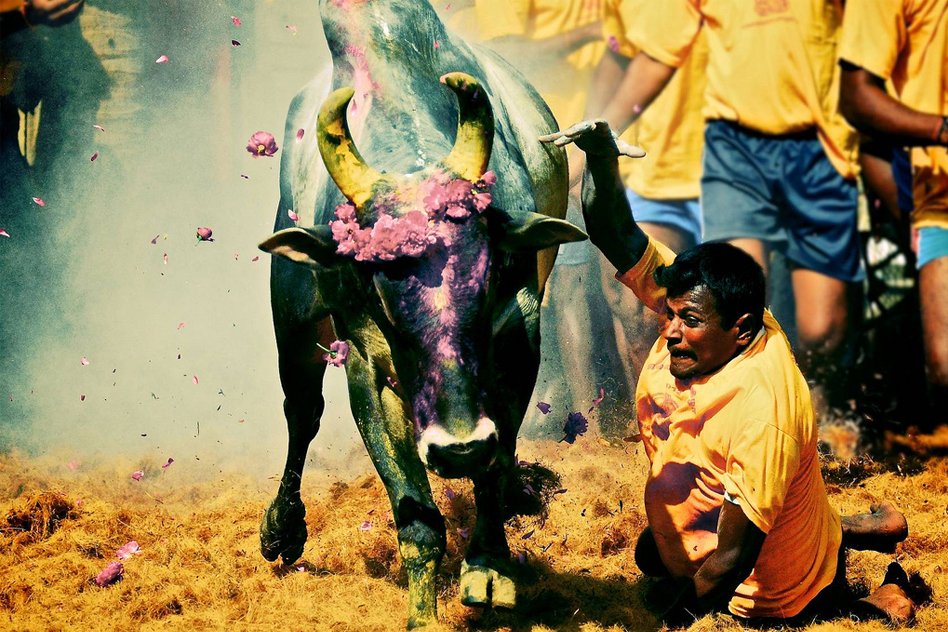Image Courtesy: lifeglobe
Lifting of ban on Jallikattu was supposedly a populist move in election bound Tamilnadu. A populist move that angered the animal rights activists and the Animal Welfare Board of India.
Recent timeline of event:
1.) On January 7 the central government overturned a earlier 2011 notification that banned Jallikattu. (bull-taming sport played in Tamil Nadu as a part of Pongal celebrations, the form of celebrations are reported to be dating back to 1500 BC)
2.) On January 12, 2016 the Supreme Court criticized the central government for lifting the ban and has issued a stay on the January 7 notification.
3.) As it stands much to the delight of Animal Welfare Board of India and Animal rights activists and to the dismay to a large number of people of Tamilnadu, Jallikattu remains banned.
So what happens at Jallikattu? Is it dangerous?
The bulls are aggravated with wine and spices by feeding them and applying on their bodies. The enraged bull is then let out with men waiting to tame the bull.
The game according to the supporters of Jallikattu symbolizes tradition and bravery. Despite the popular following, the game is fraught with injuries to both people and the animal and sometimes the injury has been severe and fatal too.
According to one report from 2010 to 2014, there were approximately 1,100 injuries and 17 deaths as a result of Jallikattu events. With Pongal celebrations around the corner, there is expected to be tangible disappointment among the participants and watchers of Jallikattu whilst a sigh of relief will be visible among the animal rights activist whose long fought battle to protect animals being subjected to cruelty.
With the central government visibly embarrassed at the recent Supreme Courts directive, it will be interesting as to what will unfold in the build up to Pongal celebrations in Tamilnadu.











